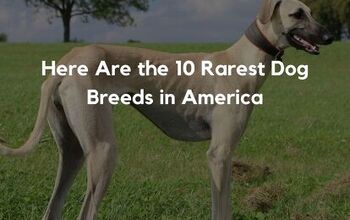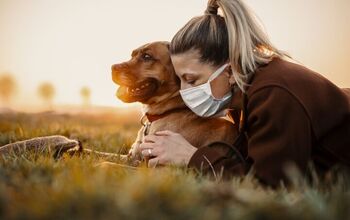2 in 3 Dog Owners Claim Their Dogs 'Could Never Survive in the Wild'

If your pet were to get loose outdoors, would they know how to survive on their own? If not, you're not alone! A recent poll conducted by One Poll and commissioned by Now Fresh revealed that 2 in 3 dog owners believe their dog would never be able to survive solo in the wilderness.
The study was conducted between March 20 and March 23, 2023, asking down owners a series of questions related to their dog's dependence (or lack thereof), their lifestyle, and their current diet.
At a time when many companies are focusing their brand messaging on the connection between dogs and wolves, it revealed an interesting conclusion: Dog owners recognize that while wolves may be their ancestors, today's domestic dogs live a very different way of life. Of those surveyed, 86% of owners reported that their dog lives "a life of luxury," while 77% agreed that dogs today have grown accustomed to being cared for and catered to.
But what does this information have to do with a dog's dietary needs?
"Dogs have evolved from their wolf ancestors in so many ways," said Theresa Lantz, companion animal nutritionist at Petcurean, makers of NOW FRESH Pet Food. "This evolution also includes changes to their nutritional needs. When we consider how different their lifestyles today are - which include being more sedentary and dependent on humans - we must also take into account that those nutritional requirements would change too."
According to the Isle Royale Wolf-Moose Project, the average wolf will walk for approximately eight hours per day between travel, defending their territories, and hunting for food. Meanwhile, the survey found that the average domesticated dog sleeps for 11 hours each day, only playing and being active for two.
The differences in their nutritional needs and regular diet go beyond the caloric requirements to support their regular activity.
With the many advances in the world of pet nutrition, dog owners have access to high-quality, balanced commercial dog foods. This has been combined with a growing focus on education, helping dog owners better understand the impact that their dog's food has on their overall health and well-being. In fact, 66% of the dog owners surveyed said they were unwilling to compromise on the quality of their pup's diet.
However, the study also revealed that much misinformation is still being spread among the pet community.
One such area of confusion is the level of protein a dog requires in their diet. 30% of those surveyed reported that they feed a high-protein diet to their dog. When asked why, they shared the following beliefs regarding high-protein diets:
- They are of higher quality (54%)
- They better fit their dog's lifestyle (40%)
- They are "biologically correct" (36%)
Wolves rely on high-protein diets to support their high levels of activity. But most domesticated dogs don't engage in nearly as much daily physical activity. As such, nutritionists advise dog owners to focus more on the quality of the protein source in their dog's food than the quantity.
"Moderate protein diets are preferential for most dogs," explained Lanz. "In fact, anything more than what their body can use is not beneficial to your pet's health and may even contribute to diarrhea, stinky gas, and even weight gain."
Next time you're shopping for your pup's food, remember this valuable information! Carefully read the ingredients and nutritional breakdown of the foods you are considering. Search for a dog food that uses recognizable whole-food ingredients and clearly identifies its protein sources.
If you are concerned about your dog's diet, consider contacting a board-certified veterinary nutritionist to discuss their needs.

Britt Kascjak is a proud pet mom, sharing her heart (and her home) with her “pack” which includes her husband John, their 2 dogs – Indiana and Lucifer – and their 2 cats – Pippen and Jinx. She has been active in the animal rescue community for over 15 years, volunteering, fostering and advocating for organizations across Canada and the US. In her free time, she enjoys traveling around the country camping, hiking, and canoeing with her pets.
More by Britt























